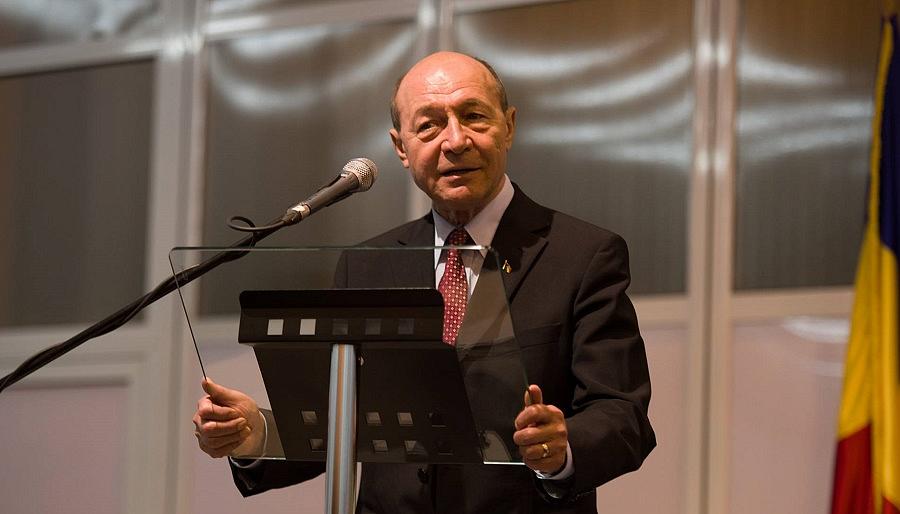Jailed billionaire’s death stirs new debate about justice and prison conditions in Romania



Romania’s former President Traian Basescu and the Social Democratic Party’s leader Liviu Dragnea reacted to businessman Dan Adamescu’s death yesterday. They brought into question once again alleged abuses by the judicial authorities and the bad detention conditions in Romania.
Basescu, Dragnea, and other top politicians have been speaking in the last months about alleged abuses of the anticorruption prosecutors, aimed at neutralizing the country’s political and business elite. The public debate about the local justice system and the fight against corruption has intensified in recent weeks as the new Parliament announced that it planned to change some laws and re-establish the balance of power in Romania.
Last week, the Government presented an emergency ordinance to pardon thousands of convicts, presented as a solution to the problem of overcrowded local prisons, and another one that brings some important changes to the criminal law, namely the way some corruption crimes are defined.
Dan Adamescu, who was sent to prison in May 2016 with a sentence of 4 years and 4 months for bribing two judges, died at a private hospital on Monday night. He had been in hospital for over a month, but his family was only granted limited visiting rights. A local court rejected his parole request in November although he had served a third of his sentence and his health condition was bad. His son, Alexander Adamescu, said that his death was likely caused by the infection with the Staphylococcus aureus, which he got while incarcerated.
Former President Traian Basescu, who was supported by Adamescu’s media group while in power although he claims he only met the businessman a few times, blames the prosecutors and judges for his death.
“This man was killed by the contempt for life of the prosecutors and judges, without someone having sentenced him to death,” Traian Basescu wrote in a Facebook post, questioning the anticorruption prosecutors’ opposition to Adamescu’s release on parole. He also suggested that the judges who ruled on Adamescu’s parole request were intimidated by the DNA prosecutors into rejecting it.
“Do we know how many tens or hundreds of simple people, unknown but sick, die every year in penitentiaries due to the prosecutors’ and the judges’ content for the inmates’ lives? They are simple people, not millionaires like Adamescu, and die unknown,” Basescu wrote.
PSD leader Liviu Dragnea, whose party supports the ordinance to pardon over 3,000 inmates in Romania just to have fewer people in local prisons, asked the Justice Ministry to announce how many people have died in local prisons. “Last night, a man died in prison,” Dragnea said on Tuesday, referring to Adamescu’s death. “As far as I know, that man wasn’t convicted to death,” Dragnea said, according to Hotnews.ro.
“I think that the Justice Ministry should announce how many people died in Romanian prisons. We must know if there are tens, hundreds, or thousands. These people haven’t been convicted to death and I don’t think it’s fair they die in jail,” The PSD leader added.
However, the National Penitentiaries Administration (ANP) announced last week that 98 people died in local prisons in 2016, of a total of almost 28,000 inmates. “Statistically speaking, this results in a death rate of 3.5 for each 1,000 inmates, which is three times lower compared to the national average,” said ANP director Marius Vulpe. The death rate in Romania is 11.7 per mille, according to the National Statistics Institute (INS).
The PSD leader also mentioned that the European Court of Human Rights has ruled “a lot of fines and sentences” against Romania due to the bad conditions in the penitentiaries and that Romania has a very bad image due to this problem. The main argument for the emergency ordinance on pardoning is that the European Court of Human Rights may issue a pilot-decision against Romania on detention conditions, which would force the state to pay some EUR 80 million per year to the inmates.
Romania’s President Klaus Iohannis said the calculation was superficial and that a future ECHR pilot-decision would allow the Romanian state enough time to solve the problem, before financial penalties are decided. Iohannis met with the ECHR president and the Council of Europe’s secretary general in Strasbourg on Tuesday.
The President also said that he didn’t rule out pardoning, but that this measure should be taken for those in prisons, not for those “sitting in the Parliament and waiting to be pardoned”, according to Mediafax.
The emergency ordinance presented by the Justice Ministry last week provides that even people who have suspended sentences may be pardoned. It also reduced by half the sentences of prisoners over 60, regardless of the crimes they were convicted for, although the Government promised that violent criminals or those convicted for corruption wouldn’t be pardoned.
Romania’s President calls for referendum on justice laws
editor@romania-insider.com